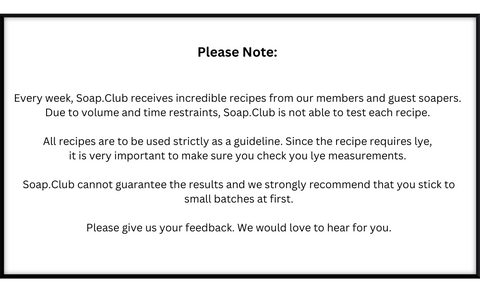What Causes Acne? Preventative Measures for Severe Acne
Posted on December 28 2022
Can Acne Be Prevented?
Acne occurs when hair follicles become clogged with oil and dead skin cells. Your skin contains sebaceous glands, which are tiny holes attached to hair follicles. These small sacs produce oil that helps moisturize your skin and keep it healthy.
The sebaceous glands secrete an oily substance that coats and protects the skin and hair. Sebum is an oily substance that is produced by the sebaceous glands. When a person has acne, their sebaceous glands produce an excess of sebum. Too much sebum and dead skin can create a plug that blocks the hair follicle causing severe acne.
In this post we'll discuss various methods to prevent acne and give a natural acne solution that actually works. Keep reading to find out more.
Table of Contents
The Missing Link: Skin Microbiome
It is important to remember that the battle with acne requires internal and external treatments. Live probiotic supplements promote a healthy digestive process. A recent dermatologist's report found that probiotic food is an excellent way to treat severe acne.
Scientists have begun examining microorganisms as part of skin aging, and there appears to be an increase in products based on the skin-biome industry. As we have a microbiome within the gut, we also have a microbiome inside the mouth and skin.
Several emerging studies have shown that the use of probiotics and other substances supporting the skin microbiome may decrease the appearance of skin inflammation and acne scars. We used to think of bacteria as harmful organisms that cause disease.
However, we now know that many types of bacteria are actually beneficial to our health. Probiotics are live microorganisms that can restore the balance of microbes on the skin and improve skin health.
The microbiome plays a crucial role in skin health, and an imbalance of microbes on the skin can lead to inflammation and acne vulgaris.
Preventative Measures For Acne
Acne is a common skin condition that can affect people of all ages. While many products on the market claim to treat acne, sometimes the best solution is to turn to home remedies.
Acne is an embarrassing and annoying skin condition, but several simple at-home remedies can help. Green tea, cucumber slices, aloe vera gel, and apple cider vinegar are all effective in treating acne. You can also try a baking soda paste for more stubborn cases. Keep reading to get more tips and how to apply them to get rid of your unsightly acne.
Conventional Treatment Options
There are several conventional treatment options available for those struggling with acne. However, these treatments can be expensive and may have side effects.
Some of the most common conventional treatments for acne include:
-
Topical creams and gels: These products are applied directly to the skin and help to kill bacteria and reduce inflammation. Retinoids halt new acne lesions from forming and aid in the skin's cell regeneration, unplugging pimples that have already formed. These products contain acne-treating agents such as benzoyl peroxide or salicylic acid. Benzoyl peroxide and salicylic acid may cause the skin to redden, dry, or peel off.
-
Oral antibiotics are typically prescribed by a doctor and can help kill bacteria and reduce inflammation.

-
Birth control pills: These can help to regulate hormone levels, which can, in turn, reduce acne.
-
Isotretinoin: This is a potent medication that is taken orally. It is typically only prescribed in severe cases of cystic acne that have not responded to other treatments.
While these treatments can be effective, they may not suit everyone. Some people may experience side effects from these treatments, such as dryness, redness, and irritation. Others may not be able to take them due to other health conditions.
Causes of Acne
Acne occurs when the hair follicles become clogged with sebum, dead skin cells, and bacteria. The sebum is produced by the sebaceous glands located at the base of the hair follicles.
Acne can be caused by a variety of factors, including:
-
Hormonal changes: These can trigger acne. Hormonal changes can occur during puberty, pregnancy, and menopause.
-
Certain medications: Some medications can cause acne as a side effect. Examples include corticosteroids, lithium, and certain anti-seizure medications.
-
Diet: Foods that are high in sugar and carbohydrates can cause an increase in insulin levels, which can trigger inflammation.
-
Stress: Stress can make acne breakouts worse.
Acne is a complex condition that is not fully understood. However, these factors can play a role in its development.

Acne Signs and Symptoms
Acne can present itself in a variety of ways. The most common signs and symptoms include:
-
Blackheads are small, dark-colored bumps that form when the hair follicles become clogged with sebum and dead skin cells.
-
Whiteheads are small, white bumps that form when the hair follicles become clogged with sebum and dead skin cells. They may also be called “closed comedones.”
-
Papules are small, red, inflamed bumps that form when the hair follicles become clogged with sebum and dead skin cells.
-
Pustules are larger, pus-filled pimples that form when the hair follicles become clogged with sebum and dead skin cells.
-
Cysts are large, pus-filled pimples that can cause pain and swelling. They are the most severe type of acne lesion.
-
Acne can also lead to other skin problems, such as scars and dark spots.
If you have acne, proper skin care and treatments can help. However, you can also consider natural home remedies such as aspirin, honey, green tea, and more.
Preventative Measures
Avoid Foods That Trigger Breakouts And Can Make Acne Worse
Certain foods can trigger or worsen acne. These include:
Foods that are high in sugar and carbohydrates: These foods can cause an increase in insulin levels, which can lead to inflammation.
Dairy products: Dairy products can contain hormones that can trigger acne.
Greasy and processed foods: These foods can clog the pores and lead to pimples.
Caffeine: Caffeine can increase stress levels, which can worsen acne.
Alcohol: Alcohol can dehydrate the skin and make it more susceptible to bacteria, leading to acne.
If you suspect that certain foods are triggering your acne, you may want to eliminate them from your diet or eat them in moderation.

Get Plenty of Sleep
Sleep is vital for overall health and can help reduce stress levels, which can worsen acne. Aim to get at least 7-8 hours of sleep each night.
You may also want to consider following a regular sleep schedule and avoiding activities that can disrupt your sleep, such as working late nights or using electronic devices before bed.
Reduce Stress Levels
Stress can worsen acne breakouts. If you are struggling with stress, there are some ways you can manage it, such as:
-
Exercising regularly: Exercise can help reduce stress levels and improve overall health.
-
Practicing relaxation techniques: Techniques such as yoga, meditation, and deep breathing can help to reduce stress levels.
Use Non-Comedogenic Products to Prevent Acne and Acne Scars
Non-comedogenic products are designed not to clog the pores. This can help prevent acne and the acne scars resulting from such breakouts. Look for products that are labeled “non-comedogenic” or “oil-free.”
You may also want to avoid products that contain ingredients that can trigger acne, such as artificial fragrances, parabens, and sulfates.
Clean Your Face Regularly
It’s essential to clean your face regularly to remove dirt, oil, and makeup. However, you should be careful not to overdo it. Wash your face twice daily with natural, non-toxic olive oil soap which is great for acne that you can buy from Soap.Club, or a gentle cleanser. Avoid scrubbing or rubbing your skin too hard, as this can irritate the skin and make acne worse.
|
Try our natural soaps acne remedies that you can buy from Soap.Club, |
Be Gentle With Your Skin
Acne can be a sensitive issue, both physically and emotionally. It’s important to be gentle with your skin and to avoid picking or squeezing pimples, as this can cause scarring.
Don't Stop Moisturizing
It's essential to moisturize your skin, even if you have acne. Acne treatments can be very drying, so a good moisturizer can help to prevent dryness, irritation, and flaking. Look for a moisturizer that is labeled "non-comedogenic" or "oil-free."
Exfoliate Regularly (But Gently) To Remove Dead Skin Cells
Clogged pores also cause acne. It is essential to clean the body of dirt as much as possible to reduce the build-up of bacteria. Exfoliating can help remove dead skin cells and dirt from the skin's surface.
However, you should be careful not to overdo it, as this can irritate the skin and make acne worse. Aim to exfoliate your skin 2-3 times a week with a gentle exfoliating soap or scrub.
Avoid Too Much Sun Exposure
Too much sun exposure can cause inflammation and worsen acne breakouts. Be sure to wear sunscreen every day, even if you don’t plan on spending time in the sun. It would be better for you if only you had daily exposure to sunlight of 15–20 minutes on average.
Commercial sunscreen contains dangerous compounds that can affect sensitive skin. Several natural oils provide sunscreen, though.
Check Your Medications
Certain medications can trigger or worsen acne breakouts. If you are taking any medication, speak with your doctor about the possibility of acne as a side effect.
Take zinc supplements
Vitamins and minerals can help treat acne. The soluble zinc is antibacterial and reduces red spots. Zinc reduces oil production on the skin, which may be particularly helpful if you have naturally oily skin.
There are all kinds of natural remedies for acne, such as gentle natural soap and homemade treatments using herbs. We’ve put together some of the best natural solutions to control acne.
Conclusion
Acne is a common skin condition caused by various factors, such as stress, hormones, and diet. Several ways to manage and treat acne include gentle cleansing, exfoliation, and moisturizing. Additionally, supplements such as zinc may also help treat acne.
When it comes to managing stress, try to find healthy coping mechanisms such as exercise, journaling, or spending time in nature. Lastly, be sure to eat a balanced diet and avoid trigger foods that may worsen your acne.
Click the link to get your all Natural Soaps for Acne Prevention today!

You can learn more about natural handmade soap on our blog here.
Natural Acne Remedies: 11 Effective Home Treatments: Part One



Follow Us